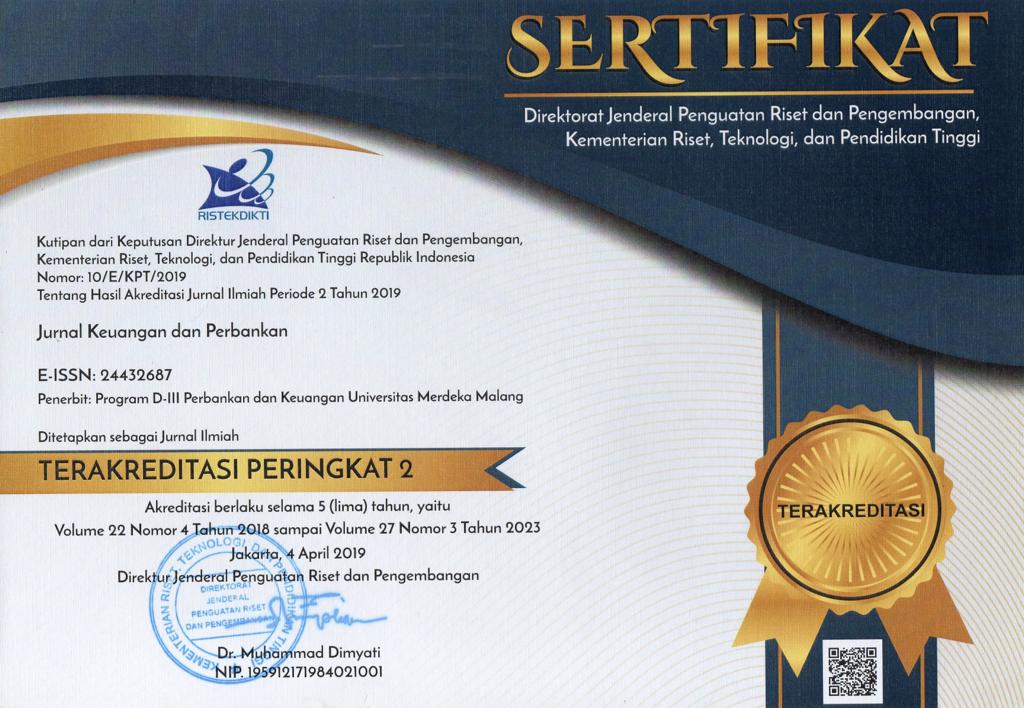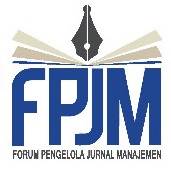Households, Financial Distress, and Predatory Lending: An Experimental Study
Abstract
A substantial part of households and micro enterprises, particularly in developing countries including Indonesia, did not have access to formal financial institutions which then lead them to borrow money from illegal loan providers. Using an experimental study, we tested whether predatory loan, an illegal short-term loan with high-interest rate, was preferable or not by comparing with pawnshop loan, bank loan and household’s limited saving when households confront with financial distress. We divided the participants into three groups: lower low, low, and upper low income. We found that predatory loan was preferable especially for the lower low and low-income group. Result also confirmed that even if the predatory loan charge was increased, the lower low- and low-income groups still prefer to ease their financial distress through predatory loans. Moreover, the longer the duration of the predatory loan, the higher its probability to be chosen as a funding source in times of household financial distress.
DOI: https://doi.org/10.26905/jkdp.v21i3.1261
Keywords
Full Text:
pdfReferences
Agarwal, S., Amromin, G., Ben-David, I., Chomsisengphet, S., & Evanoff, D.D. 2014. Predatory Lending and the Subprime Crisis. Journal of Financial Economics, 113(1): 29–52.
Bhutta, N. 2014. Payday Loans and Consumer Financial Health. Journal of Banking & Finance, 47: 230–242.
Bond, P., Musto, D.K., & Yilmaz, B. 2009. Predatory Mortgage Lending. Journal of Financial Economics, 94(8): 412–427.
Caskey, J.P. 2002. The Economics of Payday Lending. Wisconsin: Filene Research Institute.
Charness, G. & Gneezy, U. 2009. Incentives to Exercise. Journal of the Econometric Society, 77(3): 909-931.
Desai, C.A. & Elliehausen, G. 2017. The Effect of State Bans of Payday Lending on Consumer Credit Delinquencies. The Quarterly Review of Economics and Finance, 64(C): 94–107.
DeYoung, R. & Phillips, R.J. 2010. Payday Loan Pricing. Working Paper. Available at http://papers.ssrn.com/sol3/papers.cfm?abstract_id=1066761.
Engle-Warnick, J. & Laszlo, S. 2008. Experimental Economics: A Revolution in Understanding Behavior. Montreal: Center for Inter University Research and Analysis on Organizations (CIRANO) McGill University.
Gallmeyer, A. & Roberts, W.T. 2009. Payday Lenders and Economically Distressed Communities: A Spatial Analysis of financial Predation. The Social Science Journal, 46(3): 521–538.
Karsidi, R., Trinugroho, I., Nugroho, L.I., Prabowo, A. 2015. Why Households Borrow from Informal Predatory Lenders: Evidence from Indonesia. Journal of Economics and Economic Education Research, 16(2): 173-185.
Melzer, B.T. & Morgan, D.P. 2015. Competition in A Consumer Loan Market: Payday Loans and Overdraft Credit. Journal of Financial Intermediation, 24(1): 25–44.
Morse, A. 2011. Payday Lenders: Heroes or Villains? Journal of Financial Economics, 102(1): 28–44.
Risfandy, T., Husa, P.P., & Asrihapsari, A. 2016. Daya Saing Bank Syariah di Sebuah Negara Religius: Temuan Empirik dari Indonesia. Jurnal Keuangan dan Perbankan, 20(2): 282–291.
Stegman, M.A. 2007. Payday Lending. Journal of Economic Perspectives, 21(1): 169-190.
Stegman, M.A. & Faris, R. 2003. Payday Lending: A Business Model that Encourages Chronic Borrowing. Economic Development Quarterly, 17(1): 8-32.
Trinugroho, I., Agusman, A., Ariefianto, M.D., Darsono, D., & Tarazi, A., 2015. Determinants of Cross Regional Disparity in Financial Deepening: Evidence from Indonesian Provinces. Economics Bulletin, 35(2): 896-910.
Trinugroho, I. & Wiwoho, J. 2016. Local Institutional Development and Cost of Financial Intermediation: Evidence from Indonesia. International Journal of Business, 21(4): 319-327.
Trinugroho, I., Sawitri, H.S.R., Toro, M.J.S, Khoiriyah, S., & Santoso, A.B. 2017. How Ready are People for Cashless Society. Jurnal Keuangan dan Perbankan, 21(1): 105–112.
DOI: https://doi.org/10.26905/jkdp.v21i3.1261
Refbacks
- There are currently no refbacks.
Jurnal Keuangan dan Perbankan (Journal of Finance and Banking)
Diploma Program of Banking and Finance, Faculty of Economics and Business, University of Merdeka Malang
Published by University of Merdeka Malang
Mailing Address:
2nd floor Finance and Banking Building, Jl. Terusan Raya Dieng No. 57 Malang, East Java, Indonesia
Phone: +62 813-3180-1534
Email: jkp@unmer.ac.id
 This work is licensed under a Creative
This work is licensed under a Creative
Commons Attribution-ShareAlike 4.0




